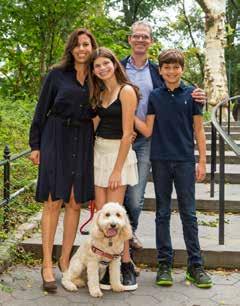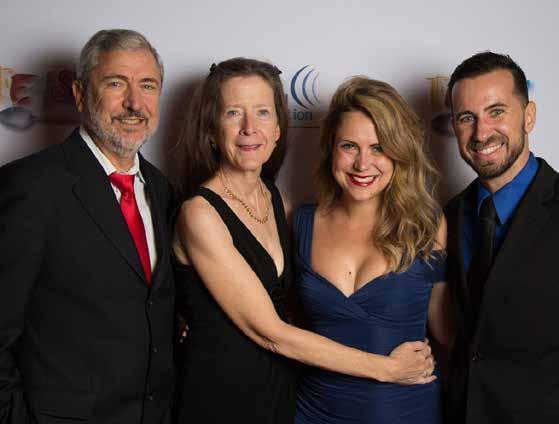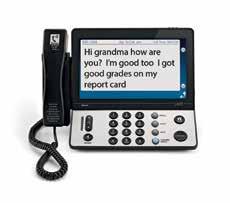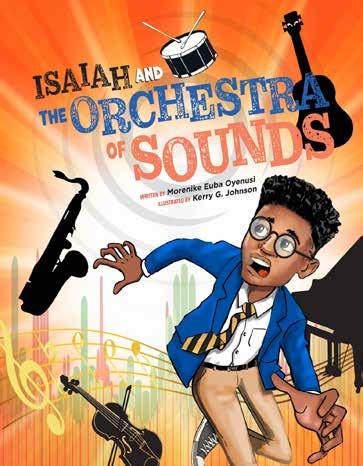
7 minute read
Family Voices We Believe
We Believe ‘CI Kids’ Can Do Anything
Two daughters with hearing loss due to Usher syndrome inspire a family in Japan to open their hearts to the world.
Advertisement
By Hiroko Endo
I am the mother of three beautiful daughters: Sakura, age 12, An, age 8, and Riri, age 4. When Sakura was born I didn’t know anything about hearing loss. But after An was born I learned a lot about hearing loss. An and Riri both have profound hearing loss due to Usher syndrome type 1 that means they will also begin to develop vision difficulties around the age of 10.
They say that necessity is the mother of innovation and that is very true in my case. After our daughters were diagnosed, I found myself feeling helpless and desperate to find solutions for them. I didn’t have a moment of peace because I was stressed all the time.
Seeing my distress, my husband Takashi gave me some words of wisdom,

Hiroko Endo with her husband Takashi and their daughters (from left) An, Riri, and Sakura.
Opposite page: The family lives in Osaka, Japan, and traveled to Australia to learn auditory verbal language skills.
saying, “It’s not right for you to base your happiness on our daughters’ health situation. It’s debilitating.”
So the question became: What can we do with what we have? We decided to use our special circumstances as a stepping stone, and that our goal would be to raise our daughters as global people of the future.
To figure out how to give our children the best chance for success, I wrote many emails and letters. I made countless phone calls. I visited institutions and centers around Japan to meet with teachers and doctors who know how to best educate children with hearing loss.
Finally I met a university professor in Japan who was very helpful. He told me about an innovative way of thinking and educating kids who wear cochlear implants in Australia. I did not know what a cochlear implant was. Now when people in Japan ask me, “What is the meaning of CI?,” I can explain how it stands for cochlear implant, a device implanted into the cochlea, or inner ear, to help children as young as age 6 months hear sounds and acquire speech.
Inspired by the Possibilities
We traveled to Australia as a family, where we learned so much and met so many wonderful people. Our daughters were enrolled in auditory verbal therapy sessions.
Their teacher was so inspiring. She believed not only in the abilities of “CI kids” but also in the possibilities they will have in the future. She was such a strong teacher determined to bring out the best abilities of children with hearing loss. I learned that 90 percent of children with hearing loss in Australia attend mainstream schools, thanks to speech and language therapy.
I spoke to so many parents who had developed their children’s speech successfully. I then realized that these children are not disabled. The handicaps are not the hearing loss or cochlear implants but rather the low awareness of the parents and caregivers around them about their chances for success. People in Japan often ask me, “What is the meaning of CI?” And I explain how it stands for cochlear implant, a device implanted into the cochlea, or inner ear, to help children as young as age 6 months hear sounds and acquire speech.
Opposite page: An (near right) wears cochlear implants, as does her younger sister Riri.
To figure out how to give our children the best chance for success, I wrote many emails and letters. I made countless phone calls. I visited institutions and centers around Japan to meet with teachers and doctors who know how to best educate children with hearing loss. Finally I met a university professor in Japan who was very helpful. He told me about an innovative way of thinking for kids who wear cochlear implants and their education system in Australia.
Children with hearing loss are a minority in every country, and those who wear CIs are even more of a minority. So it’s understandable that parents worry about their CI kids fitting in and being able to adapt and succeed in school.
I realized adversity is an opportunity and with this in mind, I launched Anfini. It is an online school that teaches English to children around the world who wear cochlear implants. It is the first international school of its kind. I believe strongly that CI kids are the key to opening doors for themselves and others in the future. As the saying goes, “The best way to predict the future is to invent it.” These students provide hope and inspiration for future generations. They do not “need to be saved” but rather will be the ones helping others, becoming future leaders in a diverse, international society.
We have 18 countries represented already! Our current curriculum includes teaching English to students, teaching auditory verbal techniques to parents, and training parents to be coaches. We provide training through videos and written text, even games, and in English and Japanese. In parts of the world, cochlear implantation is a fairly new technology so many parents are not familiar with auditory verbal techniques to enhance learning outcomes.
We are taking a parent-coach approach in hopes that parents can teach English and the child’s native language in countries where CI kids do not have access to government-subsidized rehabilitation programs. We have so far conducted trial courses for several sets of Japanese parents and received positive feedback about the group activities, the group counseling sessions, and the parentchild English lessons.
We’ve also already had many opportunities to meet with other countries through a virtual summer school, international online Meetups, and an online summit. For our inaugural summer program in 2021, CI kids from 15 countries participated. We shared two interviews, one with a ballerina from South Africa and another with a pianist from the Philippines. Both cochlear implant wearers, they talked about their challenges and how they overcame them. I think these inspirational interviews were especially beneficial for the parents because they are positive role models for their CI kids.
This January during a global Meetup, representative CI kids from each country introduced themselves in English. We also shared information about the different types of government support and rehabilitation, and the common challenges that we face.
Friends Forever
I would like to introduce a member of Anfini who has quickly become my best friend. Sometimes I think it was a miracle that we met each other. Sahar and I both gave birth to children with hearing loss in our respective countries. I am Japanese and Sahar is an IranianAustralian who was then living in Iran.
We both decided that our children needed cochlear

implants. We both chose a center in Australia called Royal Institute for Deaf and Blind Children (now known as Nextsense) to get speech therapy for our children. The center has over 20 branches in Australia and our children happened to have the same teacher.
But that’s not even how we met! Sahar moved back to Iran and I moved back to Japan. Sahar wrote and illustrated a children’s book called “My Cochlear Implants” and sent it out to parents of children with cochlear implants she found on Instagram. She would ask parents if they were willing to translate her book so more children with hearing loss could benefit from her book.
She reached out to me and I gladly translated her book to Japanese and that’s how we became friends. As we started to exchange more information about each other we realized that we had so many things in common. We are now best friends, and we work together at Anfini and share the same goals and ideas.
Children with hearing loss are a minority in every country, and CI kids are even more of a minority. So it’s understandable that parents would worry about their CI kids fitting in, adapting, and learning in their communities. There are also other issues to think about such as making friends, being bullied, and education.
We want these families to expand their horizons from their home country to the world. We want CI kids to become a global community and create lasting friendships like Sahar and I did.
Talking With the World

At first I thought I would have to learn English to make friends in other countries—but I was wrong. The way I see it now, I try harder to learn English once I have made friends outside of my country and am eager to build friendships with them.
I haven’t started to teach English to my daughters just yet, but Riri clearly said “watermelon” when a CI kid from Senegal said the word while showing her the fruit. She spoke something in English for the first time!
Hiroko Endo lives in Osaka, Japan. For more, see anfini-global.com or find Anfini on Instagram @anfini_global.
Share your story: Tell us your family’s hearing loss journey at editor@hhf.org.










